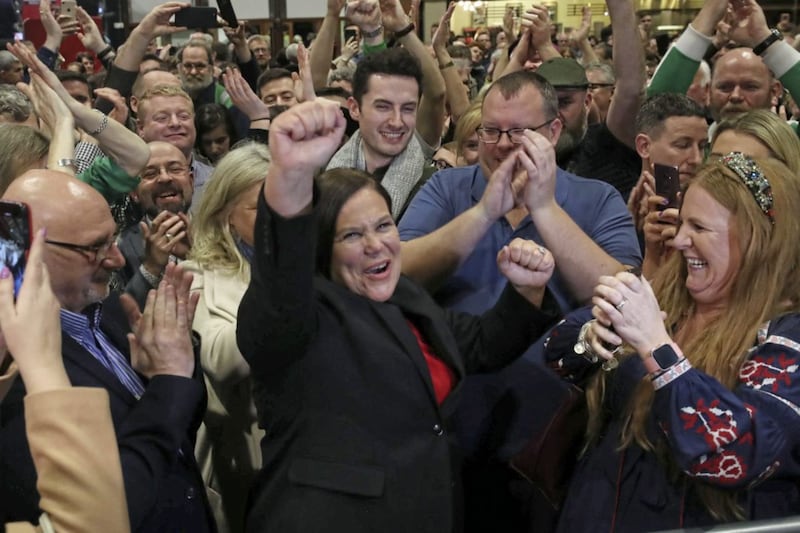ONE of the English language's most influential publications has dedicated its latest issue to the debate around Irish unity.
In the wake of last weekend's Sinn Féin surge in the Republic's general election, this week's edition of The Economist asks on its cover: "A United Ireland – could it really happen?"
The leader column inside notes how the Fianna Fáil-Fine Gael "duopoly was smashed apart" as Sinn Féin took the largest share of first-preference votes at the polls.
The article notes how Mary Lou McDonald's party has links to the IRA which "bombed and shot its way through the 1970s, 1980s and 1990s" but how its "left-wing platform" and "promises to spend more on health and housing" has led to electoral success.
"Scottish independence has grabbed headlines since Brexit, but it is time to recognise the chances of a different secession from the United Kingdom," the leader says.
"Sinn Féin’s success at the election is just the latest reason to think that a united Ireland within a decade or so is a real—and growing—possibility."

Sinn Féin secured 37 seats in the election, just one behind Fianna Fáil and two ahead of Fine Gael.
Efforts to form a coalition government are continuing.
In the wake of her party's surge at the polls, Ms McDonald has said a referendum on Irish unity was "just the direction of travel".
Speaking on the BBC's Newsnight, she said a series of factors, not just the election, suggested this was the way forward.
The Sinn Féin leader said politicians in Dublin and London had to start preparing for such a vote.








